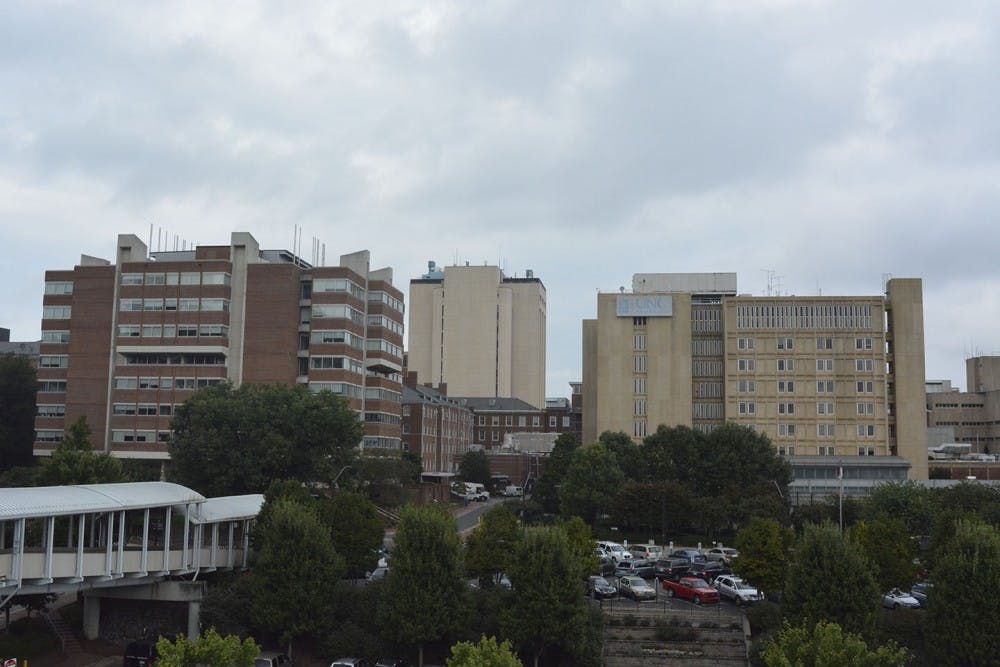CLARIFICATION: An earlier version of this article incorrectly stated that one of the the bridges that connects to a parking deck that crosses manning drive is still in the process of being dismantled. The bridge is not longer in the process of being dismantled. The article also incorrectly stated when Manning Drive will be closed. The road was closed last weeked but will not be this weekend.
UNC is upgrading its surgical hospital due to outdated operating rooms and a lack of sufficient space for patients and hospital staff. The surgical tower is expected to be completed in 2022, and its construction may be responsible for increased future traffic in Chapel Hill.
Manning Drive, where most of the UNC Health Care buildings are located, was closed last weekend to allow work to be done for the new building.
Mel Hurston, senior vice president of operations at UNC Hopstials, said the roads had to be closed for the dismantling of one of the bridges that connects to a parking deck that crosses Manning Drive and then pivots to the School of Dentistry.
“That had to be dismantled because of the utility work in that area. That bridge will be replaced in about 12-15 months, but for now it has to be removed,” Hurston said.
Construction will typically occur during the day. The everyday life of Chapel Hill citizens should remain the same, and Hurston said the bus routes will operate as normal.
“(Avoiding disruption takes) lots and lots of logistical planning,” said Ben Huffman, vice president and account manager at Skanska USA Building Inc. “We’ve got a whole series of logistical plans that we did with the work, so that we minimize the impact of the hospital. That’s our number one goal, is to not disrupt operations at the hospital.”
Rarely will the noise and other activities that take place at a construction site go into the evening hours, but Hurston said it is dependent on several factors. Among these factors is the initial work that is done on the project, such as the utility site-work, which takes place underground.
“That’s what’s going to take place, is actually starting now and will take place for pretty much the next year.” said Hurston.



